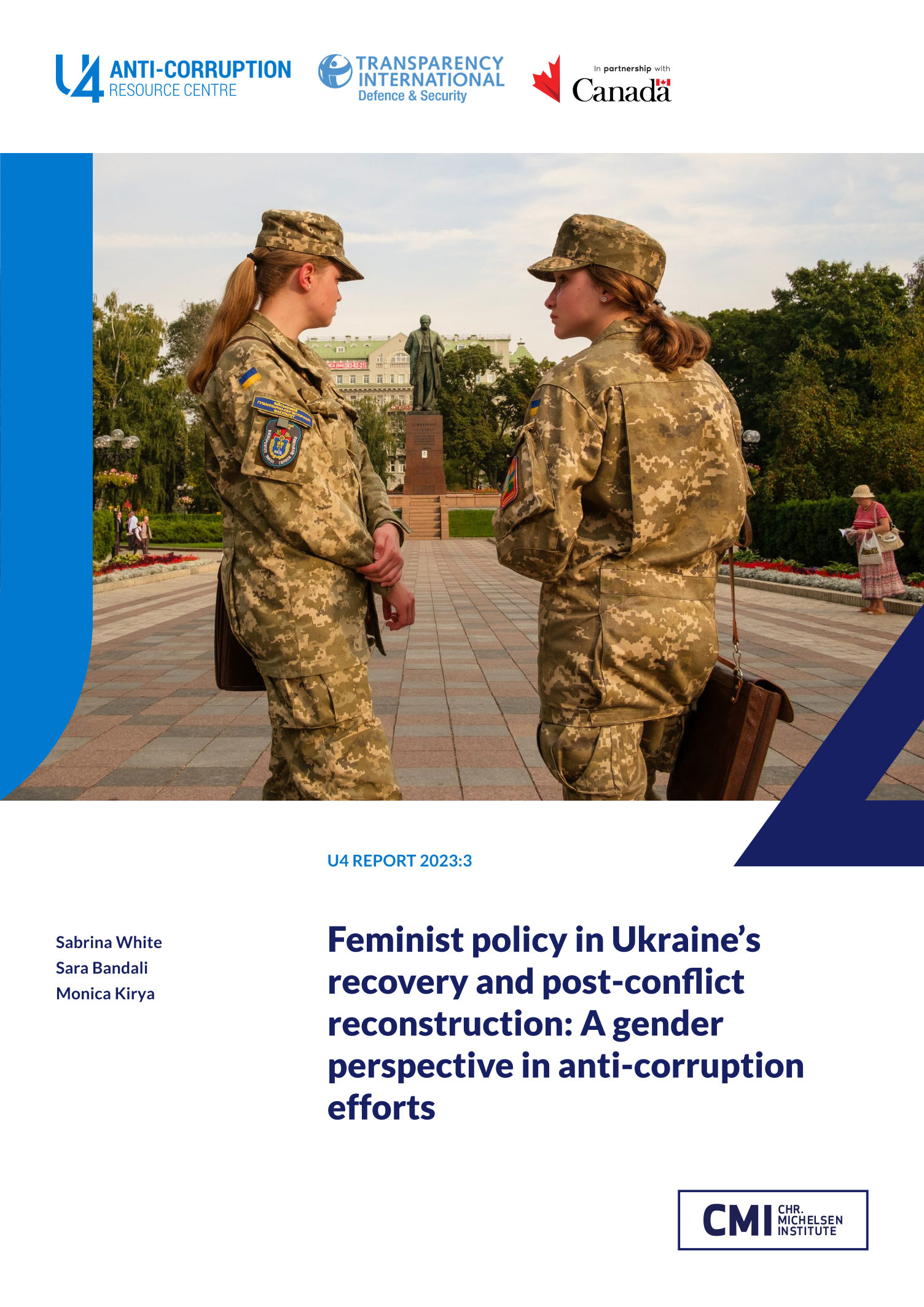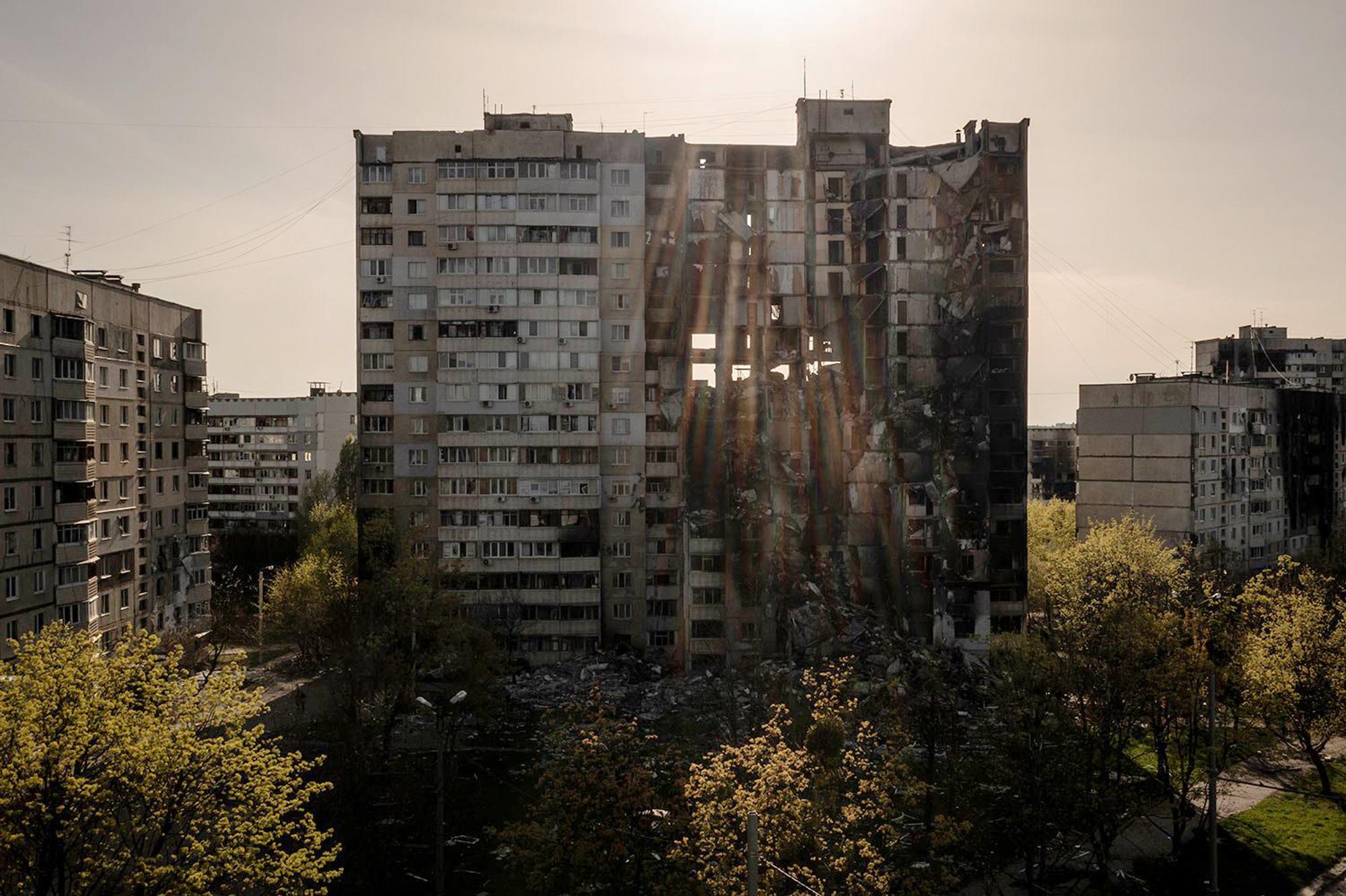Main points
- The conflict in Ukraine has the potential to reverse the country’s progress in addressing corruption and promoting gender equality. Therefore, recovery and reconstruction efforts must include a gender perspective to mitigate the conflict’s disproportionate impact on women, girls, and underrepresented groups.
- Ukraine’s National Anti-Corruption Strategy for 2021–2025 does not include a gender perspective, nor does its National Action Plan 2020–2025 (NAP) refer specifically to anti-corruption efforts. Concerted efforts are needed to address the intersection of gender equality and corruption risks.
- Paying attention to gender and integrating feminist policy considerations, based on the Women, Peace, and Security (WPS) Agenda, into anti-corruption strategies will advance relevant groups’ participation in post-conflict processes and advance integrity, accountability, and transparency.
- The exclusion of women and underrepresented groups in decision-making and the distribution and use of reconstruction aid may result in imbalances of power and destabilise the reconstruction effort. Therefore, it is crucial to ensure their fair and active involvement in reconstruction by adopting gender-responsive activities and safeguards, which will then advance gender equality.
- Stakeholders can facilitate their shared objectives through the combination of the efforts of the NAP on WPS and the National Anti-Corruption Strategy. This would inform post-conflict reconstruction planning and implementation in terms of the distribution of reconstruction resources; prevention of sexual forms of corruption; protection from corruption; and disarmament, demobilisation, and reintegration processes.
- Successful strategies for international donors should include aligning their funding with the NAP on WPS and the broader WPS Agenda, and distributing funds to projects that actively encourage gender equality and tackle gendered corruption challenges. It is important to support initiatives that help institutions and civil society to incorporate a gender-sensitive approach to the anti-corruption efforts of the reconstruction and recovery process, as well as target gendered forms of corruption.



